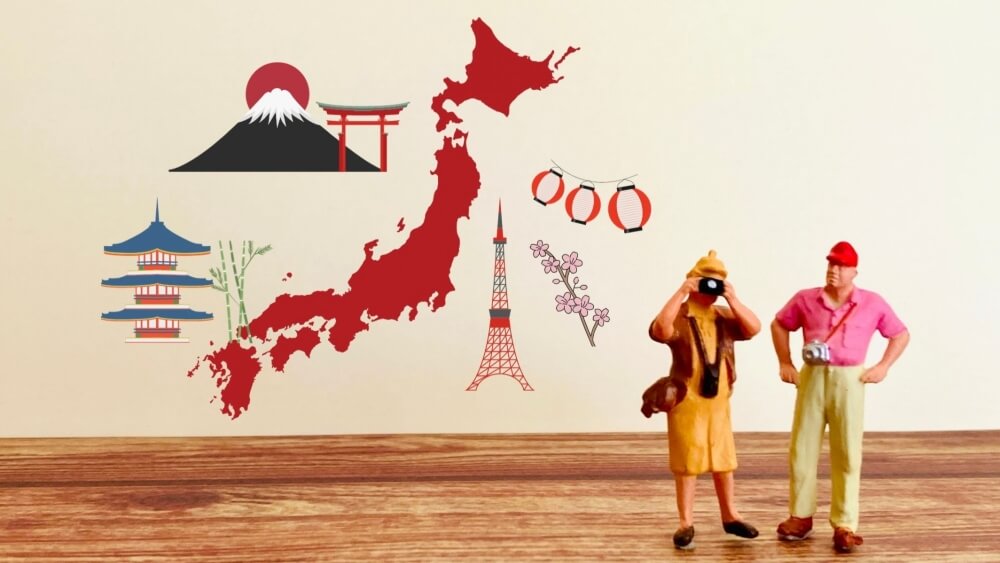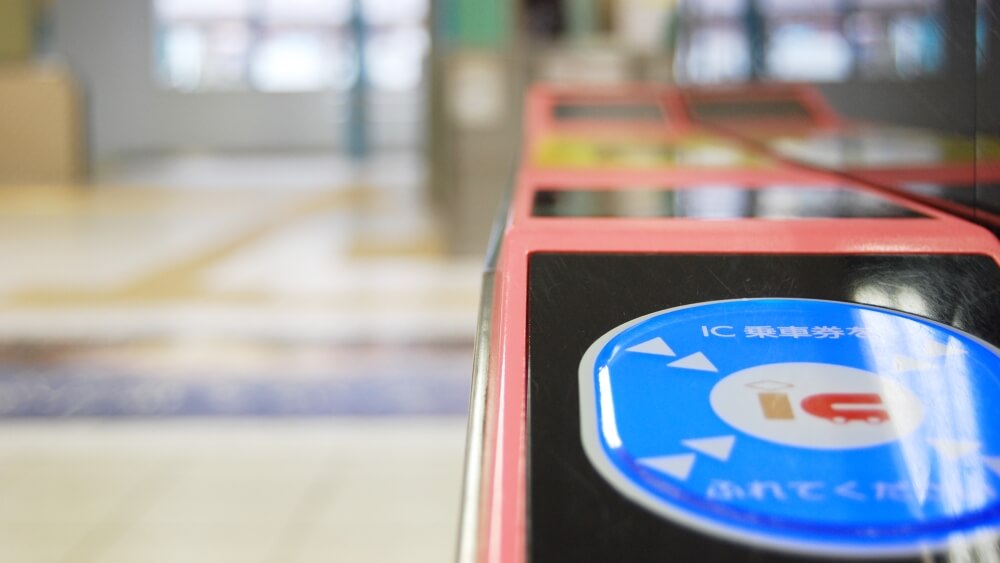When travelling in Japan, knowing a few key Japanese phrases can be incredibly helpful. Since English isn’t widely spoken, relying solely on it can sometimes make things difficult. This guide introduce some essential travel phrases to help make your trip smoother. By using these customisable phrases, your journey will likely be more enjoyable and allow you to connect more with the local culture.
Looking for travel information in Japan? Then take a look at our travel guide!
Basic Greetings
Before learning phrases for travel, let’s start with fundamental greetings! “Hello”, “thank you”, and “goodbye” are the basic greetings in any country. While greetings may not be as emphasised in Japan as in some Western countries, they undoubtedly contribute to smooth conversations and creating a pleasant atmosphere.
Konnichiwa! (Hello!)
Arigato (Thank you)
Sayonara (Goodbye / See you)
Sumimasen (Excuse me / Sorry)
Requesting Something
1. ~ kudasai (~ please)
Usage
Use “~kudasai” when you want something. Insert the name of the desired item in place of “~”.
If you don’t know the Japanese name of what you want, just point it out and say “Kore (This)”. “~kudasai” can’t be used alone.
Examples
- Mizu, kudasai. (Water, please.)
- Kore, kudasai. (This one, please.)
2. Onegai shimasu (Please)
Usage
- It can be used in exactly the same way as “~ kudasai.” In this case, “~ onegai shimasu” gives a more polite impression compared to “~ kudasai.”
- You can use it without adding a direct object. For example, if asked, “Would you like some water?” responding with “Onegai shimasu” conveys the meaning of “Yes, please.”
Examples
- Onegai shimasu. (Yes, please.)
- Mizu, onegai shimasu. (Water, please.)
3. Tasukete! (Help!)
Usage
In emergencies or when you need help, saying just ‘Tasukete!’ is enough, especially if it’s obvious what kind of assistance you need. Adding ‘kudasai,’ which you already learned, makes the request sound more polite.
Examples
- Tasukete! (Help!)
- Tasukete kudasai! (Please help!)
4. Koko ni (~ de) kaite kudasai (Please write here in ~. )
Usage
This phrase can be used when you want someone to write their response in a specified place like on your notebook. Replace “~” with a language you want the response in.
- English = Eigo
- French = Fransugo
- German = Doitsugo
- Chinese = Chuugokugo
Examples
- Koko ni kaite kudasai. (Please write here.)
- Koko ni eigo de kaite kudasai. (Please write in English here.)
Posing Questions
5. ~ wa doko desuka? (Where is ~?)
Usage
This phrase is useful when you need to know the location. Insert the specific word for a location in place of “~,” such as “Toire” for toilet or “Eki” for a station.
Examples
- Tokyo eki wa doko desuka? (Where is Tokyo station?)
- Toire wa doko desuka? (Where is the toilet?)
6. ~ ga hanase masuka? (Do you speak ~?)
Usage
This sentence is used when you wish to ask if someone speak your own language. Insert the language you want to ask about in place of “~.” Refer to the previous table for the name of languages.
Examples
- Eigo ga hanase masuka? (Do you speak English?)
7. Ikura desuka? (How much?)
Usage
It’s an useful line to ask the price of something. Use this phrase by pointing at the item or add the name of the item before the phrase.
Examples
- Kore, ikura desuka? (How much is this?)
8. Kono ~ wa ~ ni iki masuka? (Is this ~ goes to ~?)
Usage
You can use this phrase when inquiring about the destination of transportation, such as trains or buses. Place the mode of transportation, like ‘train’ or ‘bus,’ in the first blank, and the destination in the second blank.
Examples
- Kono densha wa Tokyo eki ni iki masuka? (Does this train go to Tokyo station?)
- Kono bas wa Shinjuku ni iki masuka? (Does this bus go to Shinjuku?)
Other useful phases
9. Wakarimasen. (I don’t understand.)
Usage
Use this phrase when you don’t understand what someone is saying. You can also add details about what you don’t understand before the phrase. To add more, it can be connected to phrases mentioned earlier, such as ‘koko ni kaite kudasai‘ or ‘Eigo ga hanase masuka?'”
Examples
- Sumimasen, wakarimasen. (Sorry, I don’t understand.)
- Nihongo, wakarimasen. (I don’t understand Japanese.)
10. Matte kudasai. (Please wait.)
Usage
This phrase can be used when you want someone to stop an action or wait in a particular place. You can add time words like “Sukoshi (a bit)” or “Gofun (Five minutes)” before the phrase.
Examples
- Sukoshi matte kudasai. (Please wait a bit.)
- Gofun matte kudasai. (Please wait for five minutes.)
Combining the phrases
By combining these phrases above, you can engage in various small conversations in different scenarios.
Ordering at a Restaurant
- Eigo menu onegai simasu. (English menu please.)
- Gofun matte kudasai. Arigato! (Wait for five minutes, please. Thank you!)
- OK, kore kudasai. (OK, this one please.)
- Toire wa doko desuka? (Where is the toilet?)
Asking for Directions
- Sumimasen, eigo ga hanase masuka? (Excuse me, do you speak English?)
- No? Mmm, OK, Shibuya eki wa doko desuka? (No? Mmm, OK, where is Shibuya station?)
- Wakarimasen. Koko ni kaite kudasai. (I don’t understand. Please write here.)
- Arigato. Sayonara. (Thank you. Goodbye.)
At a Store
- Konnichiwa! (Hello!)
- Kore wa ikura desuka? (How much is this?)
- Koko ni kaite kudasai. (Please write here.)
- OK, kore, kudasai. (OK, I’ll take it.)
Congratulations, you are now a master of Japanese travel phrases!
Enjoy your time in Japan using these phrases.
If you are interested in learning Japanese more deeply, check out “Effective Japanese learning: 13 steps From Beginner to Pre-intermediate”


